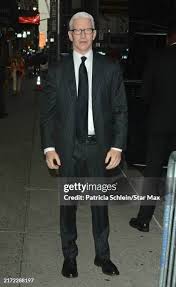
Introduction
Anderson Cooper, a prominent figure in the field of journalism, has become a household name through his role as a lead anchor for CNN. Not only is he renowned for his insightful reporting and impactful storytelling, but his approach to news coverage continues to influence how journalism evolves in the digital age. As the media landscape changes, Cooper’s work remains a touchstone for many aspiring journalists.
Career Highlights
Born on June 3, 1967, in New York City, Cooper is a descendant of the famed Vanderbilt family. He graduated from Yale University and began his career in journalism by working for Channel One News. His first major breakthrough came when he joined CNN in 2001 as a war correspondent during the U.S. invasion of Afghanistan, covering crucial events that shaped public perception in real-time.
Cooper’s anchoring style is characterized by his calm demeanor and dedication to fact-based reporting. He has gained acclaim for his coverage during significant national and global crises, such as the 2010 Haiti earthquake, Hurricane Katrina, and various political events. His program, ‘Anderson Cooper 360’, is well-regarded for in-depth analysis and interviews.
Recent Developments
Recently, Cooper has addressed the challenges faced by journalists in the current media landscape, particularly the rise of misinformation and the growing impact of social media on news dissemination. In numerous discussions and interviews, he emphasized the need for journalists to remain diligent and provide accurate news that honors the ethics of the profession.
In 2023, while continuing his work at CNN, Cooper has also ventured into digital storytelling platforms, enhancing his reach and connecting with younger audiences. He emphasizes the importance of adapting to new platforms while maintaining traditional journalistic standards.
Conclusion
Anderson Cooper’s significance in journalism cannot be understated. He has become a respected voice in a tumultuous era for news media, championing accuracy and integrity in reporting. As the industry continues to navigate challenges brought on by technology and shifting audience behaviors, Cooper’s legacy will likely inspire future generations of journalists to uphold the values of public service and accountability. Readers can look forward to more of his work, as he continually seeks to adapt and grow within the ever-changing landscape of modern journalism.



